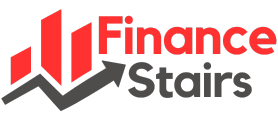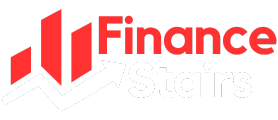One of the main decisions individuals should make in the complicated universe of financial decision-making is choosing the appropriate kind of loan. It’s essential to fathom the subtleties of different loan alternatives, whether you’re using them for personal financial requirements, buying a vehicle, or buying a house. Personal, vehicle, and home loans all have different purposes and are accompanied by different conditions, interest rates, and payback plans. Here is everything you need to know about choosing the right loan.
Key Takeaways
- Choose a loan based on how it will be utilized. Loans for real estate, auto loans for cars, and personal loans for a range of purposes.
- Because home and vehicle loans are secured, moneylenders are at less risk. Because there is more risk involved, unsecured personal loans may have higher interest rates.
- Personal loans offer adjustable interest rates, auto loans have varied terms and credit standards, while home loans have lower rates.
- Pick a loan that fits your finances. Home loans for large aggregates, auto loans for cars, and flexible personal loans for unobservable needs.
- Match loan alternatives to long-term goals Home loans for real estate purchases, automobile loans for regular needs, and personal loans for dire goals without risking finances.
Home Loans: Building Dreams with a Solid Foundation
Purpose and Scope
A mortgage, also alluded to as a house loan, is a kind of financial instrument created especially to make the purchase of a property easier. This kind of loan makes it possible for individuals to realize their ambition of becoming homeowners by giving them a sizeable amount of money to purchase real estate.
Key Features
- Large amounts of money are often offered by home loans over long periods of decades. A borrower’s creditworthiness, down payment, and property valuation are a portion of the components that affect the loan amount.
- Interest rates on home loans may be either variable or fixed. Fixed-rate mortgages provide monthly payment certainty by keeping the interest rate consistent for the course of the loan. Conversely, variable-rate mortgages might change according to the state of the market.
- The loan is secured by the property being supported. This implies that the bank has the authority to take legal action to confiscate the property if the borrower defaults.
Considerations
- Long-term, significant obligations are made when taking out home loans. When agreeing to a long-term mortgage, borrowers should take their lifestyle, work possibilities, and financial stability into account.
- The ability to accumulate equity is one benefit of a house loan. Homeowners may build equity when property prices rise and mortgage amounts fall, giving them more money for future ventures.
Auto Loans: Driving Towards Ownership
Purpose and Scope
Vehicle purchases are the specialty of auto loans, which allow individuals to purchase automobiles, motorbikes, or other forms of mobility. For anyone who might want to loosen up the cost of a car over the long run, this kind of financing is a sensible option.
Key Features
- Auto loans pay for the expense of the vehicle in addition to a more limited payback term (generally three to seven years) than housing loans.
- The interest rates on vehicle loans might be fixed or variable, much as on house loans. However, since vehicle loans have more limited payback terms than house loans, their interest rates are often higher.
- Collateral is the vehicle being financed. The bank may take possession of the car to recover the unpaid balance if the borrower doesn’t make payments as agreed.
Considerations
Usually, cars lose value after some time. In the early years, borrowers should know that the loan amount can be more than the car’s selling value, which might lead to negative equity.
The total expense of ownership is increased by continuous auto maintenance and insurance premiums, which borrowers should financially plan for in addition to loan payments.
Personal Loans: Flexible Solutions for Diverse Needs
Purpose and Scope
Personal loans, which are unsecured and may be utilized for certain things, including covering unforeseen needs and obligation consolidation, are different from house and vehicle loans. Borrowers might utilize the financial freedom these loans provide for personal reasons.
Key Features
- Compared to house loans, personal loans usually have lower loan amounts and more limited periods. Repayment terms might vary; they often run from one to seven years.
- Interest rates on personal loans may be more advantageous than those on vehicle loans, regardless of whether they can be higher than those on house loans. Moneylenders take more risk when making these loans without collateral.
- Since personal loans are unsecured, collateral is not required. Banks decide eligibility and interest rates based on the borrower’s income and creditworthiness.
Considerations
- When choosing a right loan, consider interest rates, these are heavily influenced by the borrower’s credit score. Sustaining a high credit score improves one’s eligibility for advantageous conditions.
- Personal loans may fulfill many financial needs because of their flexibility. These loans need careful financial management and phenomenal judgment.
Conclusion
An exhaustive assessment of financial needs, inclinations, and goals is necessary to pick the best loan. Personal, automobile, and house loans have distinct characteristics for different requirements. Interest rates, collateral, purpose, loan size, and repayment timetables should influence decisions. A detailed comparison concentrates on assisting individuals with making educated borrowing decisions for financial stability.
Frequently Asked Questions
1. What factors influence the choice between home, auto, and personal loans?
Take into consideration your financial goals, loan purpose, collateral requirements, interest rates, loan amount, and payback duration.
2. How does risk differ between secured and unsecured loans?
Secured loans like house and vehicle loans decrease bank risk with collateral. Personal loans are riskier and may have higher interest rates.
3. How do I align my loan choice with specific financial needs?
Pick personal: auto, or house loans depending on their intended use: momentary financial needs, automobiles, or real estate.
4. How should I plan for the future when selecting a loan?
Think long-term, home loans for equity and property ownership, vehicle loans for intermittent needs, and personal loans for earnest aims without sacrificing stability.
References
https://www.forbes.com/advisor/personal-loans/personal-loan-vs-auto-loan/
https://www.cnbc.com/select/personal-loan-or-auto-loan-to-pay-off-your-car/
https://www.bajajfinserv.in/home-loan-vs-personal-loan
https://eztax.in/money/personal-loans/home-loan-vs-personal-loan
https://www.nerdwallet.com/article/loans/personal-loans/home-equity-loan-vs-personal-loan


